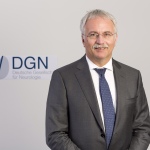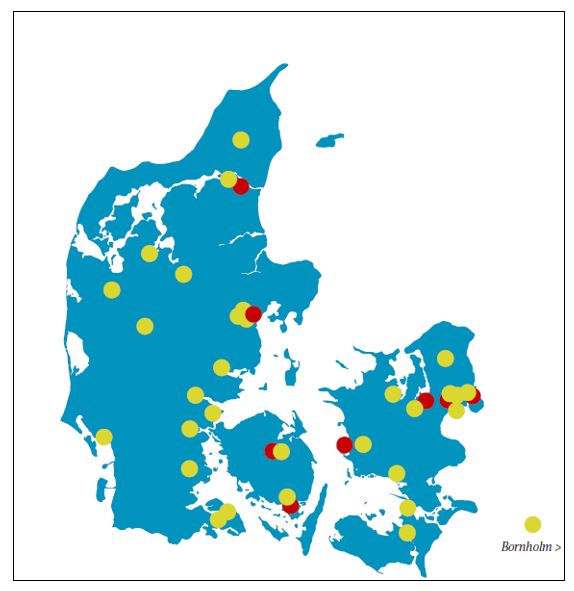It took decades until neurology in Germany recovered from the brain drain caused by the Nazi regime during the 1930ies and 1940ies (see previous chapters III and IV of this series). Initially the German Neurological Society (Deutsche Gesellschaft für Neurologie, DGN) recovered only slowly until late in the last century when this development speeded up, coinciding with the re-unification of Germany. This also meant that former East German neurology, strongly linked to psychiatry and restrained by a centrally planned economy, suddenly received access to much wider resources and became open for scientific progress. Until then only subspecialties of East German neurology such as neurochemistry and cerebrospinal fluid research had received international reputation.
Retrospectively the starting point of the rapid growth seems to be the initiation of the DGN-“Fortbildungsakademie” (“Academy for Continuous Medical Education”) by Klaus Felgenhauer, Göttingen. Here for the first time the DGN defined new goals, beginning the transition from a merely scientifically oriented association into a forum for all German neurologists. The 13th World Congress of Neurology in Hamburg under the leadership of Klaus Poeck was another major step in the development of the DGN. Yet some other profound changes of the DGN were also ongoing at that time.
Since the 1980s German Neurology had already changed its destination. It was no longer a mainly diagnostical specialty, yet got transformed with a strong therapeutic impetus. Just to name one, Hans-Georg Mertens put great energy in the establishment of neurological intensive care units and modern treatment of neuroimmunological diseases, followed by the powerful “stroke unit movement” (see previous chapter V). Thus a steady improvement of neurological care in Germany could be observed. The DGN clearly recognised the different needs expressed by its members. These included the foundation and support of specialised subsocieties, such as for neurological intensive care, Parkinson’s disease, epilepsy – just to name some. All of these are represented in a board called ‘Beirat’ and give advice to the DGN for further improvement of neurological education and strategies. Importantly, the “Guidelines” for neurological diseases also proved to be a success story now going into the sixth edition. These strategic moves clearly reflect the challenges of specialisation but also retain the integrity of neurological medicine: the DGN speaks with a single voice for German Neurology!
The expansion of the DGN is also reflected by numbers: In 1993 there were 1100 DGN members, and this rose to almost 8000 individual members nowadays making DGN the largest national neurological association in Europe. During the same timespan the number of visitors of the annual congress has grown from 1000 up to 6500. Of course, this was also a challenge for the internal structure of the DGN. Operational flexibility was strengthened by the introduction of a full-time general manager in 2006, the establishment of a permanent headquarter in the center of Berlin in 2008 and founding of a DGN service company in 2013. In parallel to these formal changes, permanent public relations, media relations and a vital website since 2008 improved the visibility of the DGN.
Viability and future success of a medical society always needs ‘fresh meat’. During the linear increase of DGN members in the last two decades we also supported the development of a Young Neurologists branch. This included formal support at the organisational level, stipends for young attendants at the annual meeting, summer schools for raising interest in neurological topics and education. The Young Neurologists branch selects a spokesman/woman every two years, and is represented with an own program at the annual DGN meeting. These efforts ensure that DGN stands with the highest proportion of young members amongst German medical societies, almost 40%.
How do we manage future challenges? We know the slogan ‘people who stop to improve also stop and loose their quality’. We keep on linking progress in basic science with translational entry into medical care. In close synergy with the professional representation of German neurologists via the Berufsverband Deutscher Neurologen (BDN) we are committed to take care and give advice to our members. This also includes teaching and continuous medical education.
We always have an open ear for the needs of our young society – ad multos annos!
Ralf Gold is President of the German Neurological Society and Professor of Neurology at Ruhr University in Bochum, Germany.





